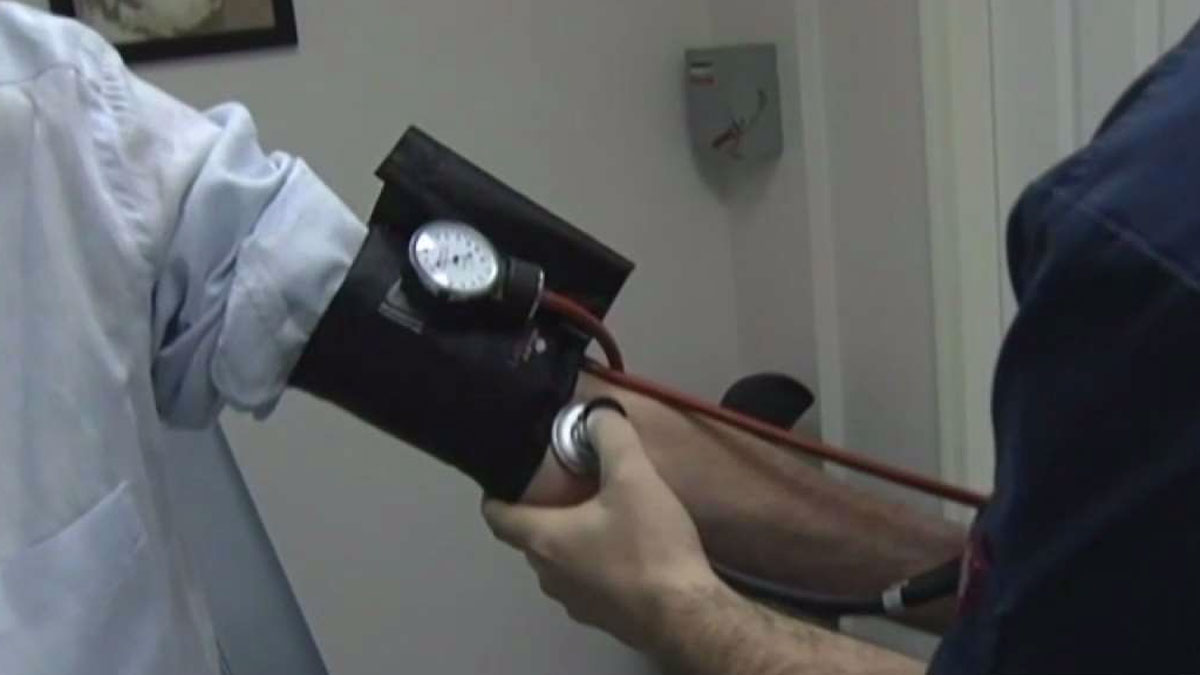
Connecticut lawmakers are working on trying to lower the cost of healthcare in the state.
Executive Director of the Office of Health Strategy Dr. Deidre Gifford talks about the efforts to make it happen.
Mike Hydeck: So the cost of prescriptions - one of many aspects healthcare politicians have been trying to rein in for years. The governor has a plan, it deals with a prescription discount card. How do you think that could help and how would that be financed?
Deidre Gifford: Well, thanks for bringing up the larger point that healthcare costs are really impacting the residents and businesses of Connecticut. And as you mentioned, the governor has put forward two proposals this session to come at this really complex issue from multiple different angles. And we know drug costs are really impacting people and their pocketbooks. We were at a small, independent pharmacy earlier this week. And we heard from consumers and pharmacists and healthcare providers about how much people are struggling. So what this proposal would do is it would allow Connecticut to join a multi-state purchasing cooperative that can essentially purchase drugs at lower costs through bulk purchasing and negotiation, and then allow the residents of Connecticut if they want to get a card that they could present at the pharmacy and see if this bulk purchasing cooperative would give them their medication at a lower price.
Get Connecticut local news, weather forecasts and entertainment stories to your inbox. Sign up for NBC Connecticut newsletters.
Mike Hydeck: Are the states delineated yet? Which states are also participating?
Deidre Gifford: Oregon, Washington and Nevada are currently in a part of this particular program. And Connecticut, if we joined, would be the first one from the east to join in.
Mike Hydeck: I've done interviews with people in the healthcare space many times. Benefit managers is something that continues to come up. The person at a pharmacy who, in a sense, adds a layer of cost of what we pay for prescriptions, right. Does the governor's proposal address that at all?
Face the Facts
Face the Facts with NBC Connecticut goes beyond the headlines, asking newsmakers the tough questions, giving an in-depth analysis of the big stories.
Deidre Gifford: We do. There is actually some funding for my office, the Office of Health Strategy, to study exactly what you're talking about Mike, these pharmacy benefit managers who are an intermediary, a middleman, if you will, between the drug producers, and the insurance companies and pharmacies. So the study would really allow us to describe the role that they play, look at how they might be impacting cost, and shine a bit of a light on what's happening with these PBMs. There's another program that we would also get some transparency on - it's called the 340b drug program. That's a government-sponsored discount drug program that's intended to provide lower cost medications for communities and individuals. And we want to see how that program is working in Connecticut as well.
Mike Hydeck: Is there something that should happen on the national level when it comes to drug pricing? Because one of the things I keep going back to, insulin, has been around for how many years now? 100 years? Yet people are still paying exorbitant prices for that. When you make the argument that the money has to go into research and development, when the research and development is paid off, ample profit should definitely be taken care of by the company, they should get the profit over all their hard work. But when we're talking 100 years worth, that seems a little ridiculous. Can the bigger picture be fixed?
Deidre Gifford: Mike, it's an excellent point. And you are right, it's going to take federal, as well as state action to tackle this really, really complicated issue against, you know, very significant forces and an industry that contributes a tremendous amount, but also has contributed to the rise in prices. So you know, what we have been saying, what the governor is saying is, first of all, everybody needs to do their part. Second of all, we've got to tackle these problems from multiple different perspectives. And he also said this week that we can't necessarily wait for federal action. We did see some action in the Inflation Reduction Act, with for the first time now, Medicare, having the ability to negotiate for the price of drugs, but states are also going to have to take action. States are going to have to lead on healthcare costs. And that's what we are doing with these two proposals.
Mike Hydeck: Let's talk about the bigger picture once more. CVS owns Aetna. So now the people who are selling you prescriptions are saying how much you have to pay for them in your insurance. Is there anything that can be done about that? How can competition lower cost when a situation like that exists right here in our home state?
Deidre Gifford: You know, I'm a big believer and I think the evidence shows that transparency is very powerful in situations like this. So part of the challenge that we've had with healthcare prices in general, is the secrecy around who's paying what for what in the healthcare space. So, as I mentioned, one of the governor's proposals would ask us to study this question about pharmacy benefit managers, and see really how the dollars are flowing. We've got our cost growth benchmark initiative in Connecticut, that for the first time this March is going to be talking about how much prices are increasing and who's contributing or what sectors are contributing to those increases. So we're starting to pull back the veil a little bit and then we can have an argument or a discussion about solutions that's based on data and facts.